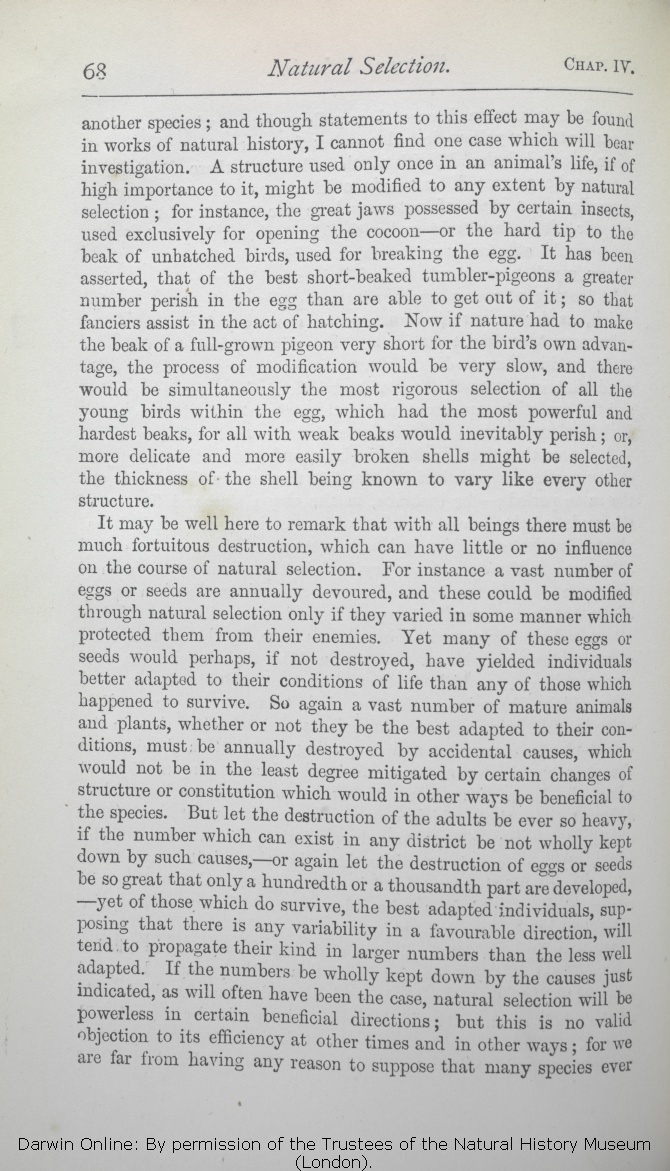another species; and though statements to this effect may be found in works of natural history, I cannot find one case which will bear investigation. A structure used only once in an
animal's | animal's 1859 1861 1866 1872 | | animals 1860 1869 |
| ..... 1869 1872 | | whole 1859 1860 1861 1866 |
| ..... 1860 1861 1866 1869 1872 | | and 1859 |
| unhatched 1872 | | nestling 1859 1860 1861 1866 1869 |
| a greater number 1869 1872 |
| more 1859 1860 1861 1866 |
| Now 1872 | | Now, 1859 1860 1861 1866 1869 |
| bird's 1859 1861 1866 1872 | | birds 1860 1869 |
| all the 1869 1872 | | the 1859 1860 1861 1866 |
| perish; 1866 1869 1872 | | perish: 1859 1860 1861 |
|
|
| It may be well here to remark that with all beings there must be much fortuitous destruction, which can have little or no influence on the course of natural selection. For instance a vast number of eggs or seeds are annually devoured, and these could be modified through natural selection only if they varied in some manner which protected them from their enemies. Yet many of these eggs or seeds would perhaps, if not destroyed, have yielded individuals better adapted to their conditions of life than any of those which happened to survive. So again a vast number of mature animals and plants, whether or not they be the best adapted to their conditions, must be annually destroyed by accidental causes, which would not be in the least degree mitigated by certain changes of structure or constitution which would in other ways be beneficial to the species. But let the destruction of the adults be ever so heavy, if the number which can exist in any district be not wholly kept down by such causes,— or again let the destruction of eggs or seeds be so great that only a hundredth or a thousandth part are developed,— yet of those which do survive, the best adapted individuals, supposing that there is any variability in a favourable direction, will tend to propagate their kind in larger numbers than the less well adapted. If the numbers be wholly kept down by the causes just indicated, as will often have been the case, natural selection will be powerless in certain beneficial directions; but this is no valid objection to its efficiency at other times and in other ways; for we are far from having any reason to suppose that many species ever
|









